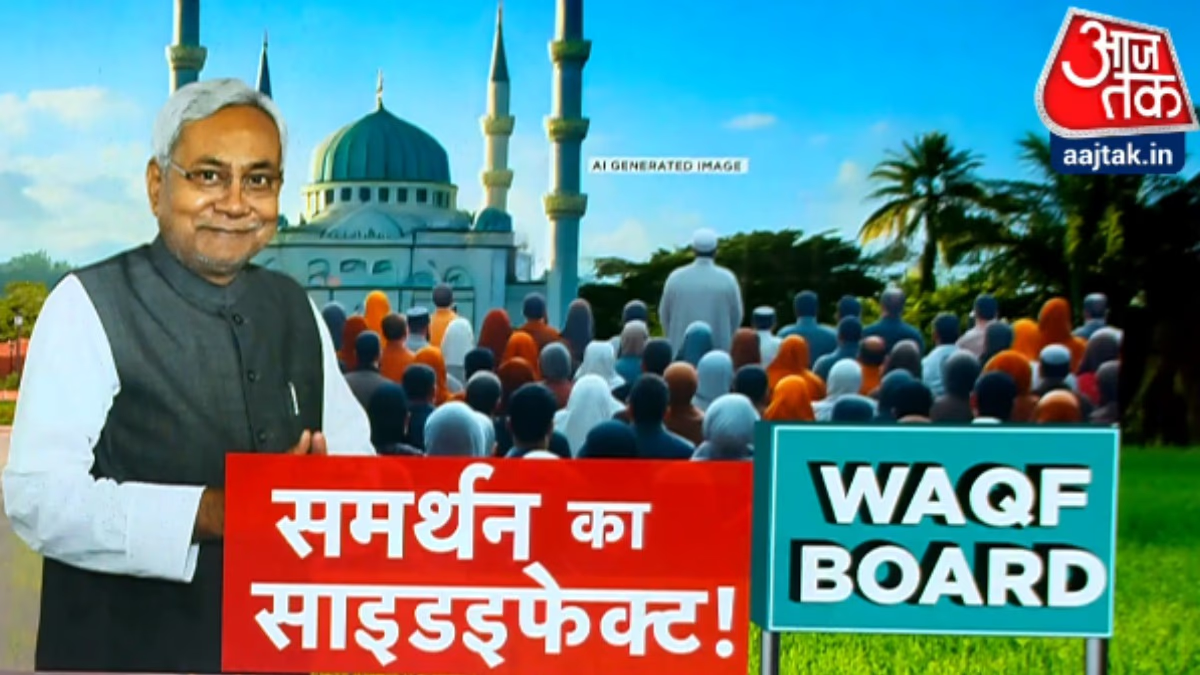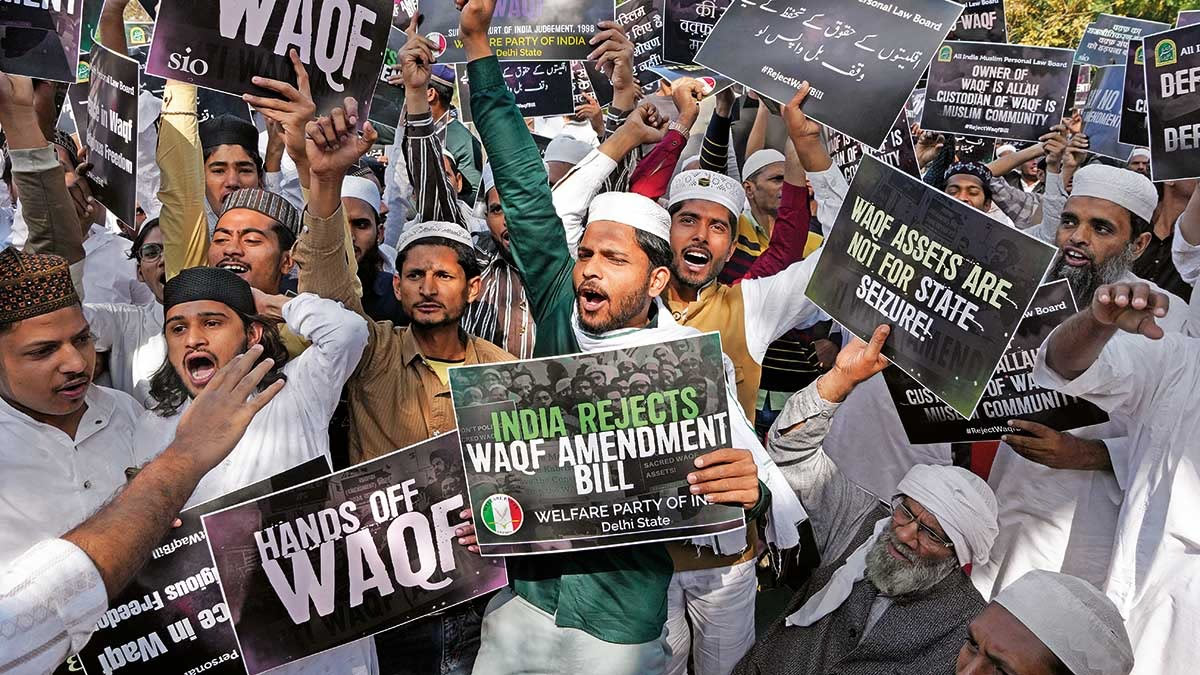After lengthy debates, the Waqf Amendment Bill has passed in the Rajya Sabha. It will now go to the President for approval before becoming law. In Bihar's political circles, pressing questions are arising: What are the repercussions for Nitish Kumar's open endorsement of the Waqf Amendment Bill? Have previously divided opposition parties united in Parliament to safeguard Muslim votes? The anger of Muslim leaders has become evident following Nitish Kumar's support for the Bill.
Afzal Abbas, JDU leader and Chairman of the Shia Waqf Board in Bihar, mentioned that there is unrest among Muslims because of the Waqf Bill. As the board's chairman and a JDU leader, he stated Nitish Kumar must recognize the sentiments of the Muslim populace regarding the Bill.
Not only questions but resignations are surfacing. JDU Minority Morcha's state secretary, Nawaz Malik, resigned due to the party's stance on the Waqf Bill. He criticized the support for the Bill, while leaders like Qasim Ansari also stepped down earlier. Moreover, JDU Minority Department's General Secretary, Mohammad Tabrez Siddiqui Alig, resigned, severely opposing the party's direction.
JDU MLC Ghulam Gaus had already questioned this, as did JDU General Secretary Ghulam Rasool, who opposed the Bill.
Nitish Kumar, alongside Chandrababu Naidu, stood firm with the government despite opposition and pressure from Muslim groups. Kumar's party rejected Congress's secular arguments, and now both Muslim leaders and faith leaders accuse JDU of betrayal. Back in 2014, Kumar distanced himself from the NDA over secularism, yet his party openly supported the government on the Waqf Amendment Bill.

Source: aajtak
Could It Backfire in Bihar Elections?
The question arises: Could Nitish Kumar's party stance on the Waqf Bill backfire, impacting Muslim votes in Bihar elections? As opposition parties and Muslim organizations corner Kumar's party on Muslim interests, a major party statement emerged. Sanjay Jha emphasized that what JDU did for Muslims hasn't been matched by Congress or RJD, claiming the Bill's passage benefits impoverished Muslims and keeps Pasmanda voters loyal to JDU.
In politics, leaders like Nitish Kumar detect changes swiftly and adapt. Did he overlook the potential fallout of opposition claims or accurately assess the impact on JDU concerning Muslim votes before supporting the Bill? Perhaps he's concluded that association with NDA will not significantly impact the Muslim vote, aware of receiving substantial Muslim support from 2009 to 2015.
What Was Written in Resigned Muslim Leaders’ Letters
In separate letters, Mohammad Qasim Ansari and Mohammad Nawaz Malik told Bihar Chief Minister Nitish Kumar they lost the trust that Muslims once had, believing his party to be secular. Ansari, writing in Hindi, expressed regret for his years of commitment to the party. Malik noted the Waqf Bill's violation of fundamental constitutional rights.
Ansari penned in his resignation, "I must say it with utmost respect: many Indian Muslims like us were committed to your secular vision, but this trust has broken. As dedicated Indian Muslims and party workers, we are profoundly hurt by this stance. Your understanding of this issue is lacking, and I'm disappointed with my years of dedication to this party."
On the other hand, JDU Minority Secretary Mohammad Nawaz Malik also resigned, expressing displeasure over the party's support for the Bill. In his resignation to Nitish Kumar, Malik wrote, "Many Indian Muslims trusted your secular ideology, but this faith is now shattered. JDU's stance on the Waqf Amendment Bill deeply wounds loyal Indian Muslims and party workers like us. The way RCP Singh supported the Bill in Lok Sabha has left us disheartened."
Nitish's Party Drew Muslim Votes Historically
Up to 2009, 2010, even with BJP alliances, Kumar won 21–62% of Muslim votes, though it declined with NDA associations. But Muslim-majority areas continued voting for Kumar due to significant Muslim-backed initiatives since 2005, such as graveyard boundary fencing, initiating Bhagalpur riot inquiries, and implementing 20% reservations for backward communities, including Muslims. From 2006 to 2014, Kumar sent five Muslim leaders to Rajya Sabha, of which four were Pasmanda Muslims. Politics has since shifted; could Waqf Bill support diminish Kumar's residual Muslim vote?
It’s possible neither Tejashwi nor Congress will benefit from Kumar’s Waqf Bill stance. AIMIM's vote division hindered RJD before; now, AIMIM and Prashant Kishor's Jan Suraj Party are present. In November 2024, Bihar saw PK's party vote-splitting, aiding NDA wins in four by-elections. Does Kumar believe his historical decisions for Muslims secure votes while divided Muslim votes limit opposition advantages?




